SUMMARY
This is AI generated summarization, which may have errors. For context, always refer to the full article.

Western Union and MoneyGram International resumed money-transfer services to Afghanistan on Thursday, September 2, moves in line with a US push to allow humanitarian activity to continue after the Taliban’s takeover.
The pair suspended services in Afghanistan more than two weeks ago after the Islamist militia captured Kabul at lightning speed.
But an easing of security concerns following the completion of the Taliban’s conquest of the country opened the way for the reopening this week of banks, which the money-transfer firms rely on to dispense and collect funds.
Jean Claude Farah, Western Union’s president in Asia, Europe, the Middle East, and Africa, told Reuters the reopening of banks, plus a push by the United States to facilitate humanitarian assistance to the Afghan people, had given the American company confidence to resume services on Thursday.
“Much of our business involving Afghanistan is low-value family and support remittances that support basic needs of the people there, so that’s the grounding that we have and why we want to reopen our business,” Farah said.
“We’ve engaged with the US government, which has conveyed that allowing humanitarian activities, including remittances, to continue are consistent with US policy.”
The flow of funds from migrant workers overseas is a key lifeline for many Afghans and has helped the economy of one of the world’s poorest nations weather years of violence and instability. The United Nations says about half of the population requires aid amid the second drought in four years.
In a statement, MoneyGram said following guidance from the US government, it was resuming its services in coordination with its partners in the country and the Afghanistan Banks Association.
“We recognize that remittances play a pivotal role in the livelihood and daily needs of the Afghan people,” MoneyGram said.
Sanctions on Taliban
One complication is that there are a broad range of sanctions on financing to the Taliban, while the Haqqani network, which has links to the Taliban, is classed as a terrorist organization by the United States and Britain.
Yet US President Joe Biden’s administration has said it is committed to allowing humanitarian work to continue in Afghanistan.
“We are continuing to engage with the US government and others to understand their policies and what type of longer term regulatory framework will be put in place as it relates to the Taliban,” Western Union’s Farah said.
Remittances to Afghanistan reached $789 million in 2020, around 4% of the country’s gross domestic product (GDP), the World Bank estimated, down from $829 million in 2019.
Such flows have historically played an important role in supporting financial stability. Along with international grants and resilient exports, remittances helped Afghanistan’s current account surplus reach 14.2% of GDP in 2020, the International Monetary Fund said in June.
Do banks have the cash?
In recent days, Afghanistan’s central bank has provided funds of hundreds of thousands of dollars to each bank that requested liquidity, a senior banker told Reuters. But the financial system and economy could be in peril unless the Taliban can access the central bank’s roughly $10 billion in assets, which are mostly outside of the country.
Farah said Western Union had been assured by the banks it partners with in Afghanistan that they had sufficient cash to pay receivers of remittances.
“Some of them have indicated at some locations that they have good liquidity in afghani and at least some liquidity in US dollars as well, we allow payouts in both, to resume remittances,” he added.
Before it shut down services on August 16, around 45% of each transaction sent via Western Union to Afghanistan was $200 or less, he said.
Western Union said on Thursday that payouts of any funds sent to Afghanistan were available in select locations. Outbound services, money sent from there to other countries, remained suspended, it added. – Rappler.com
Add a comment
How does this make you feel?
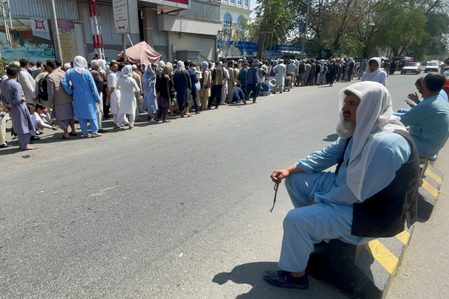
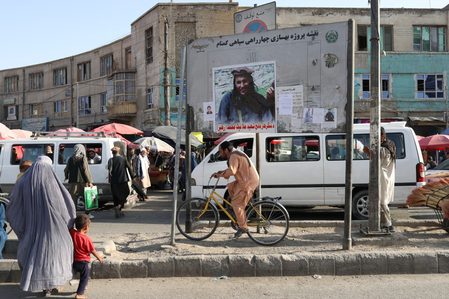
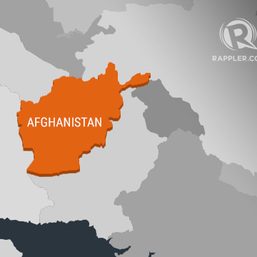
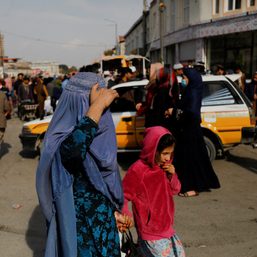
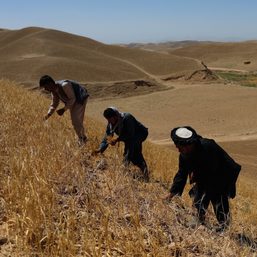
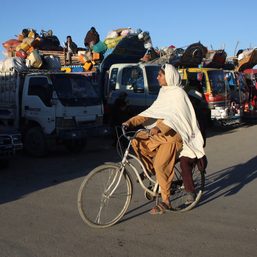

There are no comments yet. Add your comment to start the conversation.